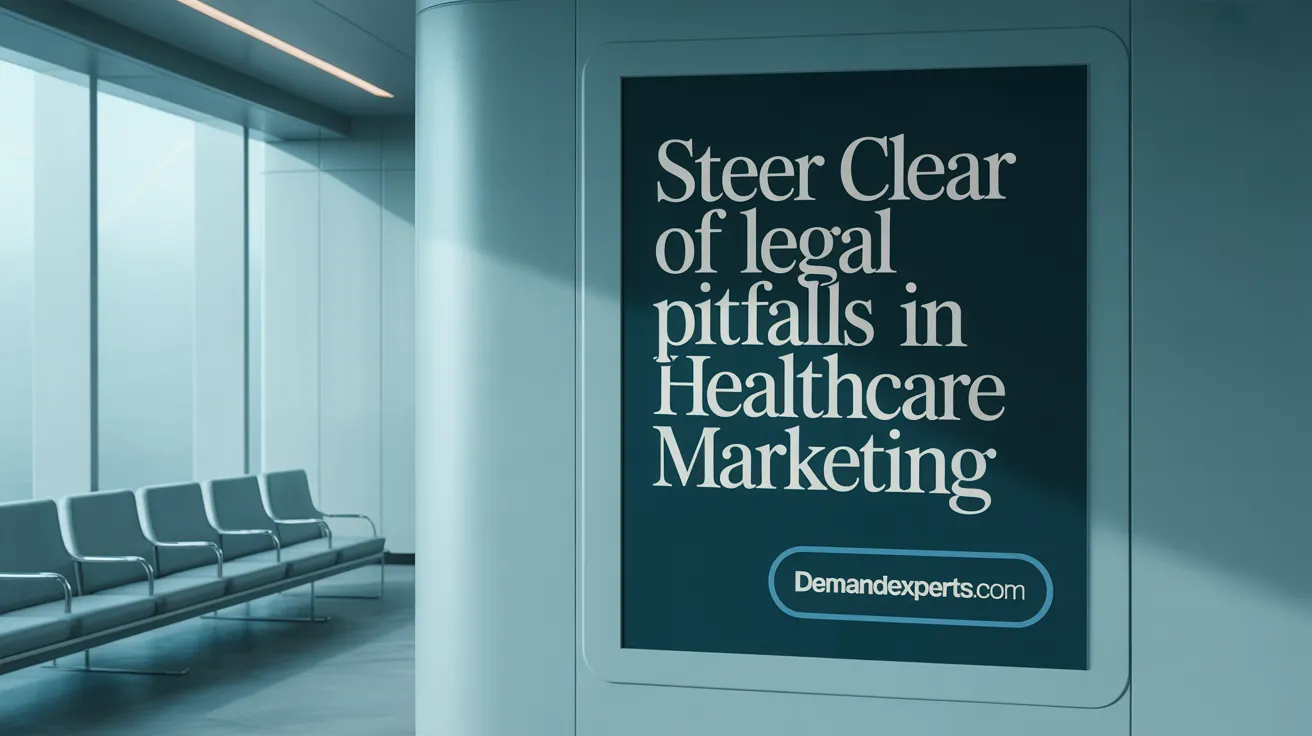Understanding the Foundations of Healthcare Marketing Compliance
Healthcare marketing operates within a landscape defined by stringent legal and ethical standards designed to protect patient privacy and ensure transparency. With evolving technologies and regulatory frameworks, healthcare organizations must stay well-informed to align their marketing initiatives with laws like HIPAA, Stark Law, and GDPR. This article unpacks the critical components healthcare marketers need to understand, from legal requirements and best practices to future trends and the roles of key stakeholders in maintaining compliance.
Key Regulations and Standards Governing Healthcare Marketing Compliance
What are the key regulations and standards governing healthcare marketing compliance?
Healthcare marketing must navigate a complex landscape of laws designed to protect patient privacy, ensure truthful communication, and prevent improper financial incentives. The most prominent federal regulations include HIPAA, the Stark Law, and the Anti-Kickback Statute.
HIPAA, or the Health Insurance Portability and Accountability Act, is central to safeguarding Protected Health Information (PHI). It restricts how organizations can use and disclose PHI, especially in marketing activities, requiring explicit patient consent for the use of such data. HIPAA also mandates secure handling of electronic PHI, including encryption and breach notification procedures.
In addition, the Stark Law prohibits physicians from receiving kickbacks or financial incentives for patient referrals, ensuring that marketing efforts do not create conflicts of interest or inappropriate referral patterns. The Anti-Kickback Statute complements this by criminalizing payments intended to induce referrals or generate federal healthcare program business.
Beyond U.S. regulations, the General Data Protection Regulation (GDPR) impacts organizations handling personal data of EU patients. GDPR emphasizes transparency, explicit consent, and data minimization, making international compliance more complex.
Legal frameworks like the False Claims Act demand truthful advertising, preventing deceptive practices that could lead to reimbursement fraud.
To stay compliant, healthcare entities should develop policies that limit the use of PHI without proper authorization, vet vendors thoroughly, and ensure that all marketing practices align with legal standards. Employee training, secure data management, and regular audits are essential components of an effective compliance program.
By adhering to these standards, healthcare providers can promote their services ethically while maintaining trust and avoiding costly penalties.
Legal Considerations and Restrictions in Healthcare Marketing

What legal considerations and restrictions must healthcare marketers be aware of?
Healthcare marketing operates within a tightly regulated environment, requiring strict adherence to multiple legal frameworks. Central to this is HIPAA, the federal law safeguarding patient health information. Marketers must obtain explicit written consent—often through detailed authorization forms—before using protected health information (PHI) in promotional activities such as testimonials, case studies, or targeted advertising. This consent must specify what information can be shared, who will receive it, and include provisions for revoking that consent.
Beyond privacy laws, healthcare marketers must pay close attention to laws like the Stark Law and the Anti-Kickback Statute. The Stark Law specifically prohibits physicians from receiving financial incentives for patient referrals, and it restricts marketing efforts that could influence these referrals or involve kickbacks. Violations can lead to hefty fines, criminal charges, and damage to reputation.
In addition, state privacy laws often go beyond HIPAA’s requirements. For example, California’s Confidentiality of Medical Information Act (CMIA) and Texas’s Medical Records Privacy Act require opt-in consent and more detailed disclosures, further restricting how patient data can be used in marketing.
Marketers must also avoid making false or unsubstantiated claims. All information shared must be truthful, backed by evidence, and compliant with FDA and FTC advertising standards. Promises of guaranteed outcomes or misleading guarantees are legally prohibited.
Ethical transparency, including clear communication about costs, services, and the nature of promotional content, is essential. This builds trust and aligns with legal mandates for truthful advertising. Marketers should continually review their practices against evolving laws and regulations, prioritize patient privacy, and foster honest, transparent relationships.
By navigating these legal considerations carefully, healthcare providers can protect themselves from violations, penalties, and reputational harm, while maintaining the trust crucial to effective healthcare delivery.
| Regulation Area | Main Requirements | Additional Notes |
|---|---|---|
| HIPAA Privacy | Obtain patient consent for PHI use; avoid disclosure without approval | PHI includes diagnoses, demographics, and even IP addresses |
| HIPAA Security | Protect electronic PHI with encryption and secure systems | Breach notification procedures are mandatory |
| Stark Law | Avoid financial incentives influencing referrals | Marketing must remain compliant to prevent kickbacks |
| State Laws | Follow regional laws, e.g., California CCP, Texas Medical Act | Often require opt-in consent and specific disclosures |
| Advertising Standards | Ensure truthful claims; avoid misleading guarantees | Require evidence for all health claims |
Remaining compliant involves continuous education, robust consent management, secure data handling, and transparency in all marketing endeavors.
Best Practices for Maintaining Compliance in Healthcare Marketing Activities
What are the best practices to maintain compliance in healthcare marketing activities?
Maintaining compliance in healthcare marketing involves clear, structured strategies to protect patient rights and meet legal standards like HIPAA and other state laws. Organizations should start by obtaining written patient consent before including any protected health information (PHI) in promotional materials such as testimonials, case studies, or targeted advertising. Consent forms must specify what information is being shared, who will receive it, and include options for revoking consent.
Partnering with vendors who understand and adhere to HIPAA requirements is crucial. All promotional partners should sign Business Associate Agreements that outline responsibilities around data security, breach notification, and confidentiality. Using encryption during data transmission and at rest — typically via TLS for emails and secure servers for storage — helps prevent unauthorized access.
Regular staff training ensures that everyone involved in marketing activities recognizes permissible communication practices and the importance of maintaining confidentiality. Routine audits of marketing content and website practices help identify potential violations early, reinforcing compliance with privacy regulations.
To evaluate marketing success without risking privacy violations, healthcare providers should rely on metrics that do not involve PHI. Examples include website traffic, click-through rates, or social media engagement. Employing secure, compliant analytics platforms—preferably those that sign BAAs—allows for tracking and attribution without exposing sensitive health data.
Implementing these practices balances effective patient engagement with strict adherence to applicable laws, safeguarding both organizational reputation and patient trust.
Strategies to Ensure Legal and Regulatory Adherence in Digital Healthcare Marketing

Which strategies are effective to ensure legal and regulatory adherence in digital healthcare marketing?
Ensuring compliance in digital healthcare marketing involves multiple layered strategies. One of the most important is utilizing secure platforms that meet HIPAA and GDPR standards. These platforms should incorporate encryption, access controls, and audit trails to protect sensitive patient data during transmission and storage.
Obtaining explicit, written consent from patients before using their protected health information (PHI) or testimonials is crucial. Clear consent forms should specify what information will be shared, identify recipients, and explain patients' rights to revoke consent at any time.
Partnering with technology vendors that are compliant with healthcare privacy laws is another critical step. Such vendors often provide secure links, QR codes, consent management tools, and analytics platforms that sign Business Associate Agreements (BAAs), ensuring data handling meets legal standards.
Content published on social media and digital advertising channels should exclude any identifiable PHI. Instead, focus on non-specific health information, general wellness tips, or anonymized success stories to avoid privacy violations.
Developing comprehensive privacy policies that clearly outline data collection, use, and security procedures helps maintain transparency. Regular compliance audits and staff training programs keep teams updated on evolving regulations, reducing the risk of violations.
Finally, establishing formal agreements with all third-party vendors and continuously monitoring legal changes across different states and regions ensure ongoing adherence. Combining these strategies creates a solid foundation for ethically responsible and lawful healthcare marketing.
Avoiding Pitfalls and Navigating Legal Boundaries in Healthcare Marketing Compliance

How can healthcare marketers navigate legal boundaries and avoid common pitfalls in marketing compliance?
Healthcare marketing is heavily regulated, and understanding these rules is crucial for maintaining compliance and protecting patient privacy. The first step involves staying informed about evolving regulations such as HIPAA, GDPR, and specific state laws like California’s CCP and Texas’s Medical Records Privacy Act. These laws often set stringent standards for how patient data can be used, especially in marketing activities.
Explicit consent is a cornerstone of legal compliance. Healthcare organizations must obtain clear, written permission from patients before using their stories, images, or health information for promotional purposes. This consent needs to specify what data will be shared, who will see it, and individuals should have the option to revoke their permission at any time.
Data security also plays a significant role. Storing protected health information (PHI) securely and encrypting data during transmission and storage minimizes the risk of breaches. Using secure, compliant data analytics platforms that sign Business Associate Agreements (BAA) helps ensure that data handling aligns with legal standards.
Training staff on HIPAA and relevant regulations is essential. Employees must understand permissible communications, the importance of confidentiality, and how to handle sensitive data properly. Regular audits and legal consultations can help identify unwarranted risks or practices that might violate laws.
Managing online reputation and social media engagement ethically is equally important. Creating and enforcing clear policies about what staff can post and how to respond to reviews can prevent accidental disclosures of health information. In instances where patient feedback is addressed publicly, care must be taken to omit any protected information.
Transparency and honesty are fundamental. All marketing messages should be evidence-based and avoid false or misleading claims. This approach not only helps maintain trust but also minimizes legal liabilities.
In summary, healthcare marketers should consistently educate themselves, implement robust safeguards, and foster a culture of legal compliance. Working with legal experts to review campaigns, ensuring rigorous consent procedures, and using compliant data management practices help steer clear of common pitfalls and uphold the highest ethical standards in healthcare marketing.
Current Trends, Challenges, and Future Directions in Healthcare Marketing Compliance

What are the current trends and challenges facing healthcare marketing compliance, and what does the future hold?
Healthcare marketing compliance today is heavily influenced by the growing complexity of regulations, persistent concerns over data privacy, and the rapid digital transformation of the industry. Organizations are increasingly turning to AI-powered tools and automation to help navigate the intricate legal landscape.
One major challenge lies in striking a balance between delivering personalized, targeted marketing messages and ensuring strict adherence to privacy laws such as HIPAA. This includes managing compliance across different states with additional regulations like California’s CCP or Texas’s Medical Records Privacy Act, which often impose more restrictive standards.
The rise of digital platforms, social media, and analytics tools demands updated strategies that uphold transparency and foster patient trust. Marketers must avoid using Protected Health Information (PHI) without proper patient authorization, which requires clear, written consent specifying what data is shared and with whom.
Automation is increasingly playing a role in maintaining compliance. AI-driven monitoring systems can perform real-time audit logging, identify unauthorized data use, and flag potential violations before they escalate. These advanced solutions help healthcare providers swiftly adapt to evolving rules.
The future of healthcare marketing compliance points toward the adoption of more sophisticated, industry-specific software solutions designed to seamlessly integrate with existing workflows. These tools will likely feature enhanced privacy protections, automated consent management, and detailed vendor oversight, including proven encryption standards and breach notification mechanisms.
Overall, as digital and social media channels continue to expand, healthcare marketers must stay vigilant. Continued technological innovation, combined with rigorous legal knowledge and adaptive compliance programs, will be essential for safeguarding patient data and maintaining trust while delivering effective marketing.
The Crucial Role of Healthcare Leaders and Compliance Officers in Marketing Compliance

What role do healthcare leaders and compliance officers play in managing marketing regulations?
Healthcare leaders and compliance officers are essential in ensuring that healthcare marketing practices adhere to legal and ethical standards. Their primary responsibility is developing policies that align with regulations like HIPAA, Stark Law, and federal guidelines, and enforcing these policies across the organization.
They oversee the creation and implementation of training programs so that staff members understand what activities are compliant, especially when dealing with sensitive patient information or engaging in digital marketing efforts.
Regular audits and monitoring workflows are crucial tools used by compliance officers to identify potential risks or violations. Many organizations utilize automation and AI-powered tools to streamline content approval processes, ensuring all promotional materials meet legal requirements before publication.
When it comes to digital and social media marketing, these professionals guide teams on prohibited activities, such as unapproved use of Protected Health Information (PHI) or incentivized referral schemes, and promote transparency in all communications.
Furthermore, they foster a culture of compliance by educating staff about current regulations and emphasizing ethical standards. This proactive approach not only minimizes the risk of violations and penalties but also builds trust with patients and regulators.
In summary, healthcare leaders and compliance officers are the backbone of legal and ethical marketing practices. They shape policies, supervise implementation, and promote continuous awareness—protecting the organization from legal actions and reputational harm while maintaining patient trust.
Sustaining Compliance in the Dynamic Healthcare Marketing Environment
Healthcare marketing compliance requires a strategic blend of legal knowledge, ethical diligence, and technological savvy. Maintaining patient privacy while engaging audiences demands adherence to regulations such as HIPAA, Stark Law, and GDPR, supported by best practices including explicit consent, secure data handling, and continuous staff education. As digital marketing evolves, leveraging compliant platforms, transparent communication, and vigilant monitoring are paramount. Healthcare leaders and compliance officers remain essential in steering organizations through this complex terrain. By embracing ongoing adaptation and innovation within a robust compliance framework, healthcare marketers can foster patient trust and achieve effective, lawful engagement in an ever-changing regulatory landscape.
References
- Understanding Healthcare Marketing Compliance: HIPAA ...
- What Is Healthcare Marketing Compliance for Medical ...
- Marketing
- What Healthcare Marketing Professionals Should Know ...
- The Three Legs of Healthcare Marketing
- Healthcare Marketing & HIPAA: Are You Following the Law?
- HIPAA, marketing and advertising: How to run compliant ...
Understanding the Foundations of Healthcare Marketing Compliance
Healthcare marketing operates within a landscape defined by stringent legal and ethical standards designed to protect patient privacy and ensure transparency. With evolving technologies and regulatory frameworks, healthcare organizations must stay well-informed to align their marketing initiatives with laws like HIPAA, Stark Law, and GDPR. This article unpacks the critical components healthcare marketers need to understand, from legal requirements and best practices to future trends and the roles of key stakeholders in maintaining compliance.
Key Regulations and Standards Governing Healthcare Marketing Compliance
What are the key regulations and standards governing healthcare marketing compliance?
Healthcare marketing must navigate a complex landscape of laws designed to protect patient privacy, ensure truthful communication, and prevent improper financial incentives. The most prominent federal regulations include HIPAA, the Stark Law, and the Anti-Kickback Statute.
HIPAA, or the Health Insurance Portability and Accountability Act, is central to safeguarding Protected Health Information (PHI). It restricts how organizations can use and disclose PHI, especially in marketing activities, requiring explicit patient consent for the use of such data. HIPAA also mandates secure handling of electronic PHI, including encryption and breach notification procedures.
In addition, the Stark Law prohibits physicians from receiving kickbacks or financial incentives for patient referrals, ensuring that marketing efforts do not create conflicts of interest or inappropriate referral patterns. The Anti-Kickback Statute complements this by criminalizing payments intended to induce referrals or generate federal healthcare program business.
Beyond U.S. regulations, the General Data Protection Regulation (GDPR) impacts organizations handling personal data of EU patients. GDPR emphasizes transparency, explicit consent, and data minimization, making international compliance more complex.
Legal frameworks like the False Claims Act demand truthful advertising, preventing deceptive practices that could lead to reimbursement fraud.
To stay compliant, healthcare entities should develop policies that limit the use of PHI without proper authorization, vet vendors thoroughly, and ensure that all marketing practices align with legal standards. Employee training, secure data management, and regular audits are essential components of an effective compliance program.
By adhering to these standards, healthcare providers can promote their services ethically while maintaining trust and avoiding costly penalties.
Legal Considerations and Restrictions in Healthcare Marketing

What legal considerations and restrictions must healthcare marketers be aware of?
Healthcare marketing operates within a tightly regulated environment, requiring strict adherence to multiple legal frameworks. Central to this is HIPAA, the federal law safeguarding patient health information. Marketers must obtain explicit written consent—often through detailed authorization forms—before using protected health information (PHI) in promotional activities such as testimonials, case studies, or targeted advertising. This consent must specify what information can be shared, who will receive it, and include provisions for revoking that consent.
Beyond privacy laws, healthcare marketers must pay close attention to laws like the Stark Law and the Anti-Kickback Statute. The Stark Law specifically prohibits physicians from receiving financial incentives for patient referrals, and it restricts marketing efforts that could influence these referrals or involve kickbacks. Violations can lead to hefty fines, criminal charges, and damage to reputation.
In addition, state privacy laws often go beyond HIPAA’s requirements. For example, California’s Confidentiality of Medical Information Act (CMIA) and Texas’s Medical Records Privacy Act require opt-in consent and more detailed disclosures, further restricting how patient data can be used in marketing.
Marketers must also avoid making false or unsubstantiated claims. All information shared must be truthful, backed by evidence, and compliant with FDA and FTC advertising standards. Promises of guaranteed outcomes or misleading guarantees are legally prohibited.
Ethical transparency, including clear communication about costs, services, and the nature of promotional content, is essential. This builds trust and aligns with legal mandates for truthful advertising. Marketers should continually review their practices against evolving laws and regulations, prioritize patient privacy, and foster honest, transparent relationships.
By navigating these legal considerations carefully, healthcare providers can protect themselves from violations, penalties, and reputational harm, while maintaining the trust crucial to effective healthcare delivery.
| Regulation Area | Main Requirements | Additional Notes |
|---|---|---|
| HIPAA Privacy | Obtain patient consent for PHI use; avoid disclosure without approval | PHI includes diagnoses, demographics, and even IP addresses |
| HIPAA Security | Protect electronic PHI with encryption and secure systems | Breach notification procedures are mandatory |
| Stark Law | Avoid financial incentives influencing referrals | Marketing must remain compliant to prevent kickbacks |
| State Laws | Follow regional laws, e.g., California CCP, Texas Medical Act | Often require opt-in consent and specific disclosures |
| Advertising Standards | Ensure truthful claims; avoid misleading guarantees | Require evidence for all health claims |
Remaining compliant involves continuous education, robust consent management, secure data handling, and transparency in all marketing endeavors.
Best Practices for Maintaining Compliance in Healthcare Marketing Activities
What are the best practices to maintain compliance in healthcare marketing activities?
Maintaining compliance in healthcare marketing involves clear, structured strategies to protect patient rights and meet legal standards like HIPAA and other state laws. Organizations should start by obtaining written patient consent before including any protected health information (PHI) in promotional materials such as testimonials, case studies, or targeted advertising. Consent forms must specify what information is being shared, who will receive it, and include options for revoking consent.
Partnering with vendors who understand and adhere to HIPAA requirements is crucial. All promotional partners should sign Business Associate Agreements that outline responsibilities around data security, breach notification, and confidentiality. Using encryption during data transmission and at rest — typically via TLS for emails and secure servers for storage — helps prevent unauthorized access.
Regular staff training ensures that everyone involved in marketing activities recognizes permissible communication practices and the importance of maintaining confidentiality. Routine audits of marketing content and website practices help identify potential violations early, reinforcing compliance with privacy regulations.
To evaluate marketing success without risking privacy violations, healthcare providers should rely on metrics that do not involve PHI. Examples include website traffic, click-through rates, or social media engagement. Employing secure, compliant analytics platforms—preferably those that sign BAAs—allows for tracking and attribution without exposing sensitive health data.
Implementing these practices balances effective patient engagement with strict adherence to applicable laws, safeguarding both organizational reputation and patient trust.
Strategies to Ensure Legal and Regulatory Adherence in Digital Healthcare Marketing

Which strategies are effective to ensure legal and regulatory adherence in digital healthcare marketing?
Ensuring compliance in digital healthcare marketing involves multiple layered strategies. One of the most important is utilizing secure platforms that meet HIPAA and GDPR standards. These platforms should incorporate encryption, access controls, and audit trails to protect sensitive patient data during transmission and storage.
Obtaining explicit, written consent from patients before using their protected health information (PHI) or testimonials is crucial. Clear consent forms should specify what information will be shared, identify recipients, and explain patients' rights to revoke consent at any time.
Partnering with technology vendors that are compliant with healthcare privacy laws is another critical step. Such vendors often provide secure links, QR codes, consent management tools, and analytics platforms that sign Business Associate Agreements (BAAs), ensuring data handling meets legal standards.
Content published on social media and digital advertising channels should exclude any identifiable PHI. Instead, focus on non-specific health information, general wellness tips, or anonymized success stories to avoid privacy violations.
Developing comprehensive privacy policies that clearly outline data collection, use, and security procedures helps maintain transparency. Regular compliance audits and staff training programs keep teams updated on evolving regulations, reducing the risk of violations.
Finally, establishing formal agreements with all third-party vendors and continuously monitoring legal changes across different states and regions ensure ongoing adherence. Combining these strategies creates a solid foundation for ethically responsible and lawful healthcare marketing.
Avoiding Pitfalls and Navigating Legal Boundaries in Healthcare Marketing Compliance

How can healthcare marketers navigate legal boundaries and avoid common pitfalls in marketing compliance?
Healthcare marketing is heavily regulated, and understanding these rules is crucial for maintaining compliance and protecting patient privacy. The first step involves staying informed about evolving regulations such as HIPAA, GDPR, and specific state laws like California’s CCP and Texas’s Medical Records Privacy Act. These laws often set stringent standards for how patient data can be used, especially in marketing activities.
Explicit consent is a cornerstone of legal compliance. Healthcare organizations must obtain clear, written permission from patients before using their stories, images, or health information for promotional purposes. This consent needs to specify what data will be shared, who will see it, and individuals should have the option to revoke their permission at any time.
Data security also plays a significant role. Storing protected health information (PHI) securely and encrypting data during transmission and storage minimizes the risk of breaches. Using secure, compliant data analytics platforms that sign Business Associate Agreements (BAA) helps ensure that data handling aligns with legal standards.
Training staff on HIPAA and relevant regulations is essential. Employees must understand permissible communications, the importance of confidentiality, and how to handle sensitive data properly. Regular audits and legal consultations can help identify unwarranted risks or practices that might violate laws.
Managing online reputation and social media engagement ethically is equally important. Creating and enforcing clear policies about what staff can post and how to respond to reviews can prevent accidental disclosures of health information. In instances where patient feedback is addressed publicly, care must be taken to omit any protected information.
Transparency and honesty are fundamental. All marketing messages should be evidence-based and avoid false or misleading claims. This approach not only helps maintain trust but also minimizes legal liabilities.
In summary, healthcare marketers should consistently educate themselves, implement robust safeguards, and foster a culture of legal compliance. Working with legal experts to review campaigns, ensuring rigorous consent procedures, and using compliant data management practices help steer clear of common pitfalls and uphold the highest ethical standards in healthcare marketing.
Current Trends, Challenges, and Future Directions in Healthcare Marketing Compliance

What are the current trends and challenges facing healthcare marketing compliance, and what does the future hold?
Healthcare marketing compliance today is heavily influenced by the growing complexity of regulations, persistent concerns over data privacy, and the rapid digital transformation of the industry. Organizations are increasingly turning to AI-powered tools and automation to help navigate the intricate legal landscape.
One major challenge lies in striking a balance between delivering personalized, targeted marketing messages and ensuring strict adherence to privacy laws such as HIPAA. This includes managing compliance across different states with additional regulations like California’s CCP or Texas’s Medical Records Privacy Act, which often impose more restrictive standards.
The rise of digital platforms, social media, and analytics tools demands updated strategies that uphold transparency and foster patient trust. Marketers must avoid using Protected Health Information (PHI) without proper patient authorization, which requires clear, written consent specifying what data is shared and with whom.
Automation is increasingly playing a role in maintaining compliance. AI-driven monitoring systems can perform real-time audit logging, identify unauthorized data use, and flag potential violations before they escalate. These advanced solutions help healthcare providers swiftly adapt to evolving rules.
The future of healthcare marketing compliance points toward the adoption of more sophisticated, industry-specific software solutions designed to seamlessly integrate with existing workflows. These tools will likely feature enhanced privacy protections, automated consent management, and detailed vendor oversight, including proven encryption standards and breach notification mechanisms.
Overall, as digital and social media channels continue to expand, healthcare marketers must stay vigilant. Continued technological innovation, combined with rigorous legal knowledge and adaptive compliance programs, will be essential for safeguarding patient data and maintaining trust while delivering effective marketing.
The Crucial Role of Healthcare Leaders and Compliance Officers in Marketing Compliance

What role do healthcare leaders and compliance officers play in managing marketing regulations?
Healthcare leaders and compliance officers are essential in ensuring that healthcare marketing practices adhere to legal and ethical standards. Their primary responsibility is developing policies that align with regulations like HIPAA, Stark Law, and federal guidelines, and enforcing these policies across the organization.
They oversee the creation and implementation of training programs so that staff members understand what activities are compliant, especially when dealing with sensitive patient information or engaging in digital marketing efforts.
Regular audits and monitoring workflows are crucial tools used by compliance officers to identify potential risks or violations. Many organizations utilize automation and AI-powered tools to streamline content approval processes, ensuring all promotional materials meet legal requirements before publication.
When it comes to digital and social media marketing, these professionals guide teams on prohibited activities, such as unapproved use of Protected Health Information (PHI) or incentivized referral schemes, and promote transparency in all communications.
Furthermore, they foster a culture of compliance by educating staff about current regulations and emphasizing ethical standards. This proactive approach not only minimizes the risk of violations and penalties but also builds trust with patients and regulators.
In summary, healthcare leaders and compliance officers are the backbone of legal and ethical marketing practices. They shape policies, supervise implementation, and promote continuous awareness—protecting the organization from legal actions and reputational harm while maintaining patient trust.
Sustaining Compliance in the Dynamic Healthcare Marketing Environment
Healthcare marketing compliance requires a strategic blend of legal knowledge, ethical diligence, and technological savvy. Maintaining patient privacy while engaging audiences demands adherence to regulations such as HIPAA, Stark Law, and GDPR, supported by best practices including explicit consent, secure data handling, and continuous staff education. As digital marketing evolves, leveraging compliant platforms, transparent communication, and vigilant monitoring are paramount. Healthcare leaders and compliance officers remain essential in steering organizations through this complex terrain. By embracing ongoing adaptation and innovation within a robust compliance framework, healthcare marketers can foster patient trust and achieve effective, lawful engagement in an ever-changing regulatory landscape.
References
- Understanding Healthcare Marketing Compliance: HIPAA ...
- What Is Healthcare Marketing Compliance for Medical ...
- Marketing
- What Healthcare Marketing Professionals Should Know ...
- The Three Legs of Healthcare Marketing
- Healthcare Marketing & HIPAA: Are You Following the Law?
- HIPAA, marketing and advertising: How to run compliant ...






